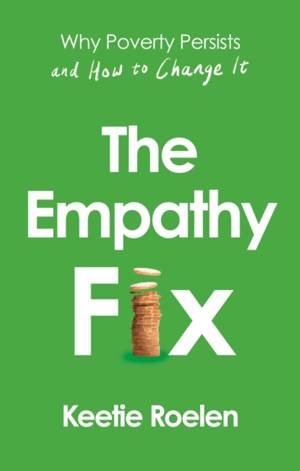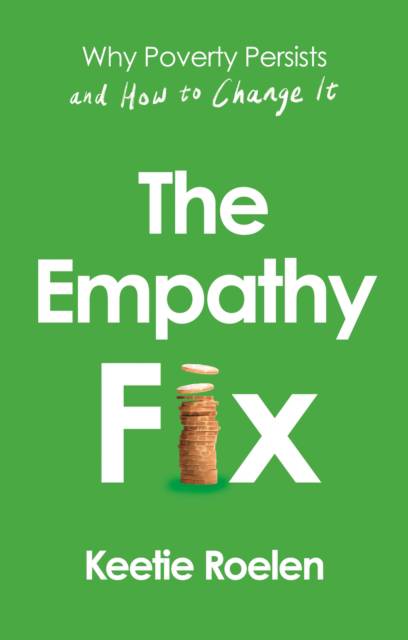
- Afhalen na 1 uur in een winkel met voorraad
- Gratis thuislevering in België vanaf € 30
- Ruim aanbod met 7 miljoen producten
- Afhalen na 1 uur in een winkel met voorraad
- Gratis thuislevering in België vanaf € 30
- Ruim aanbod met 7 miljoen producten
Zoeken
€ 25,45
+ 50 punten
Omschrijving
Poverty is something we all want to see less of. So why does it prove so difficult to tackle? Can empathy help fix it?'An important and necessary book exploring the chronic empathy deficit around global poverty, offering surprising and compelling solutions to one of the greatest injustices of our time.' - Roman Krznaric Poverty is bad for everyone. Being at the sharp end of disadvantage is shameful, reduces brainpower, and hampers positive action.
It increases crime, burdens healthcare systems and raises taxpayers' bills. With millions around the world struggling to make ends meet and increased socioeconomic uncertainty making poverty a more probable prospect for many more, tackling poverty has never been more urgent. Yet, while the ultra-rich bask in the glory of superstar status, people in poverty are cast as second-rate citizens.
Deeply engrained prejudice and punitive policies lead to vicious cycles of deprivation. Positive psychology that emphasises personal strengths can be empowering for some, but also feeds toxic narratives of failure and defeat. The flipside of taking credit for individual success is that the inability to achieve it is attributed to personal shortcomings.
The Empathy Fix exposes the realities of poverty and reveals why policies don't work. It is a radical rethink of current efforts to tackle poverty, what it means and how we break the cycle. Here, writer and researcher Keetie Roelen provides readers with the tools to relate to poverty, realise why current interventions often don't work, and to respond to the situation in a way that gives everyone a sense of dignity and agency.
Through empathy, we can all contribute to a more equal society.
It increases crime, burdens healthcare systems and raises taxpayers' bills. With millions around the world struggling to make ends meet and increased socioeconomic uncertainty making poverty a more probable prospect for many more, tackling poverty has never been more urgent. Yet, while the ultra-rich bask in the glory of superstar status, people in poverty are cast as second-rate citizens.
Deeply engrained prejudice and punitive policies lead to vicious cycles of deprivation. Positive psychology that emphasises personal strengths can be empowering for some, but also feeds toxic narratives of failure and defeat. The flipside of taking credit for individual success is that the inability to achieve it is attributed to personal shortcomings.
The Empathy Fix exposes the realities of poverty and reveals why policies don't work. It is a radical rethink of current efforts to tackle poverty, what it means and how we break the cycle. Here, writer and researcher Keetie Roelen provides readers with the tools to relate to poverty, realise why current interventions often don't work, and to respond to the situation in a way that gives everyone a sense of dignity and agency.
Through empathy, we can all contribute to a more equal society.
Specificaties
Betrokkenen
- Auteur(s):
- Uitgeverij:
Inhoud
- Aantal bladzijden:
- 336
- Taal:
- Engels
Eigenschappen
- Productcode (EAN):
- 9781805461753
- Verschijningsdatum:
- 30/01/2025
- Uitvoering:
- Hardcover
- Afmetingen:
- 144 mm x 224 mm
- Gewicht:
- 442 g

Alleen bij Standaard Boekhandel
+ 50 punten op je klantenkaart van Standaard Boekhandel
Beoordelingen
We publiceren alleen reviews die voldoen aan de voorwaarden voor reviews. Bekijk onze voorwaarden voor reviews.











